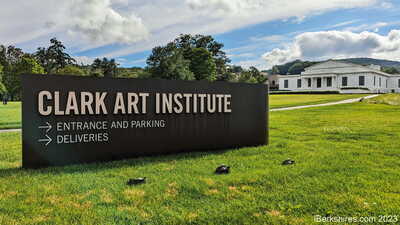Clark Art Screens 'Jaws'
WILLIAMSTOWN, Mass. — On Thursday, Feb. 6, the Clark Art Institute screens the latest installment in its Hollywood Auteurs film series, Jaws (1975), at 6 pm in the Manton Research Center auditorium.
Presented in partnership with Images Cinema, this series captures the explosion of creativity, critical acclaim, and box office success that Hollywood directors found after the fall of the studio system.
According to a press release:
A film that Steven Spielberg did not want to make, "Jaws" relies on the creative improvisations of three no-name actors (Roy Scheider, Richard Dreyfuss, and Robert Shaw) and the inspired editing of Verna Fields. She believed firmly that was you can imagine is more frightening than what you can see. Shot on the open ocean, "Jaws" is a populist, post-Watergate look at corrupt authority. (Run time: 2 hours, 5 minutes)
Free. Accessible seats available; for information, call 413 458 0524.
Tags: Clark Art,

